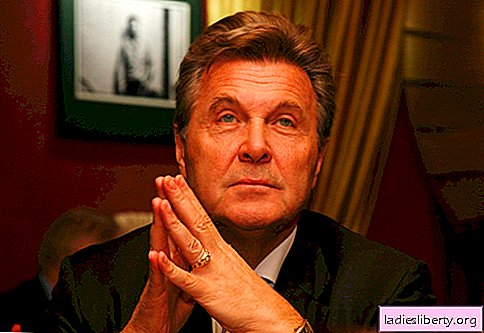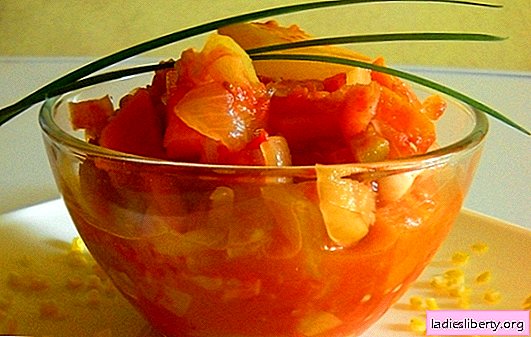
Holidays September 12
The transfer of the relics of Alexander Nevsky
At the beginning of the 18th century, a beautiful city was founded on the banks of the Neva - St. Petersburg, the new capital of the Russian state, with magnificent temples. It was here that Peter 1 decided to transfer the relics of Alexander Nevsky from Shlisserburg. He decided that the relics of the saint should protect the city from the invasion of invaders. They were installed in the Trinity Cathedral, which was located in the Alexander Nevsky Lavra. Alexander Nevsky is considered the patron saint of all soldiers and patron of the Russian land, in the schema he received the name Alexy.
He won the victory in two great battles that forever remained in the memory of the descendants - the Battle of Neva in 1240 and, two years later, in 1242 - the battle on Lake Peipsi (Battle of the Ice). In the 13th century AD, he was buried in the church of the city of Vladimir, but his imperishable relics were discovered before the Battle of Kulikovo. The Russians won the battle, and attributed this to the patronage of Alexander Nevsky. September 12 is the day of the transfer of the relics, and services are held at the Patriarchal Cathedral in Sofia, the Tallinn Cathedral and the temple in Tbilisi.
Folk calendar September 12
Alexander Sytnik
On the holiday of transferring the relics of Alexander Nevsky, Alexander Sytnik is celebrated in the national calendar - in memory of the same Alexander the Great, whose relics, after a year of waiting in Shlisserburg, were transferred by Peter the Great to St. Petersburg. Why Sytnik? On this day, rich tables were always set in Russia and all kinds of dishes were put on them. Hearty porridge made from freshly ground grains, can be barley in milk or wheat, loaves of bread from the grain of a new crop. Folk proverbs glorify bread - "It is satisfying to live with bread." On this day, peasants perform a special ceremony for the future harvest: plaiting the stalks of barley, flax, oats in an ode to a grain braid, they sang songs and asked for good weather.
Historical events of September 12
September 12, 1699 - For the first time, a Russian warship ended up in Constantinople, breaking the path along the Black Sea. The vessel was created at the mouth of the Don in the summer of 1699, it was called the "Fortress". The ship was fully consistent with its name, on board were 46 guns, the crew - more than a hundred people. The "fortress" went to Turkey with a diplomatic mission, the ship so impressed the Turkish sultan that a peace treaty between the two countries was clearly in Russia's favor.
September 12, 1715 - Peter I signed a document that forbade residents and guests of St. Petersburg to wear shoes with nails and brackets, this measure was designed to preserve the wooden coating of the streets. For violating the command of the legendary Russian Tsar, you could be fined (if you wear shoes with brackets and nails) or lose property and be sent to hard labor (when selling prohibited goods).
September 12, 1723 - Baku and the coast of the Caspian Sea came under Russian rule. The initiator of such an “accession” was Peter I, who liked this region. The Russian emperor organized an expedition that traveled to the South Caucasus and in the near future predetermined the fate of Baku and the coast of the Caspian Sea (the largest closed salt lake in the world). Persia ceded the rights to Baku to Russia.
September 12, 1953 - through cunning manipulations after the death of Stalin, Nikita Khrushchev became the first secretary of the CPSU. The period of Khrushchev’s reign is called the “thaw”, when many victims of the previous political regime were rehabilitated and released from the dungeons of the camps. Under Khrushchev, a huge breakthrough was made in the field of agriculture, older people still remember the fluffy cornmeal buns, as well as other products from this culture.
September 12, 2006 - traveling around Europe with large-scale concerts, the popular pop singer Madonna first came to Russia and gave a recital in the Russian capital. Enchanting event took place at the largest stadium in Moscow - Luzhniki Stadium.
Born on September 12
Francis I of Valois (1494-1547) - French King
Francis 1 reigned in the heyday of the Renaissance in France. Brought up in solitude, he was early engaged to a seven-year-old girl - the daughter of the king. He was considered the heir to the throne, because in those days it was accepted that only a male person can be the heir in France. The wife of the king was dedicated to the sort of plums - greengage, and she left no more mark in history. It was a time of brilliant fun and war, the king himself was called - "the king is a nobleman." The courtyard became the most fashionable in Europe, the king and his sister Margarita, a former poetess and trendsetter, shone in it. War and the heyday of the state gave rise to French absolutism under the subsequent ruler - Sun King Richard the Lionheart.
Stanislav Lem (1921-2006) - Soviet doctor, writer
As a practicing physician, Stanislav began to write short stories, the first time they saw the light in 1946. He began to devote all his time to writing, working on science fiction novels. The first literary success was the Astronauts novel, 1951, then the Magellanic Cloud, 1955. In addition, his humorous cycles, psychological essays, poems, film adaptations of his novels are known. In 1970, the main work was published - "Fiction and Futurology", where he denounces mental laziness and unwillingness to understand and think about the basic laws of the universe.
Tatyana Doronina (1933) - Soviet Russian theater and film actress
Even at the Moscow Art Theater School, the actress stood out with talent, then, after graduating from the acting school, the Lenin Komsomol Theater in Leningrad. The heroines of Doronina were considered imperfect in Soviet times, which is why the actress made them so lively and close, emotional and romantic. After moving to the large drama theater of Georgy Tovstonogov, she played a series of magnificent roles in performances. The actress worked in many theaters in Moscow - the Moscow Art Theater, named after Mayakovsky, made her film debut in the film "First Echelon". The Golden Fund of Soviet Cinema includes the paintings Three Poplars on Plyushchikha and Elder Sister. But the actress has few roles in the movie. Today, Doronin is the director of the Moscow Art Theater, also plays some roles in it.
Irina Rodnina (1949) - three-time Soviet Olympic figure skating champion
Victory in the Olympics is not the only merit of the famous athlete, except that she won 11 times in the European Championships, six times became the champion of the USSR and 10 times the world champion. Irina Rodnina owes merit to the fact that in Soviet times, figure skating became the most popular sport. Having first skated at the age of 5, the athlete did not part with them for decades. She performed in pair skating with Ulanov, for the first time in 1969 they became European champions and since then have constantly become winners of various competitions.
After the collapse of this pair, Irina performed with Alexander Zaitsev, and for the first time in the history of figure skating, the pair was rated 6.0. Their performances were distinguished by great speed, a large number of new elements (more than 30 were invented in total), and amazing synchronism. Having left sports in 190 at the peak of popularity after receiving another gold at the competitions, Rodnina worked for a long time as a trainer in the USA and Russia.
Irene Joliot-Curie (1897 - 1956) - French physicist
The daughter of the great physicist, Maria Skłodowska Curie, Irene helped her mother in a laboratory for the study of radium. She studied polonium, a radioactive element also discovered by her parents. The purpose of research is to study the structure of the atom. Together with her husband, bearing the surname Joliot, Irene discovered many new elements, and later, continuing the traditions of her mother, received the Nobel Prize also in chemistry. She worked as the director of the institute, taught at the Sorbonne, which she once graduated from, the French Atomic Energy Commissariat. Having received a large dose of radiation during work, she died in 1956.
Name day September 12
Name day celebrate: Gabriel, Makar, Maxim, Nikolai, Eugene, Gregory, Alexander Angelina, Arseny, Daniel, Alexei, Elizabeth, Ivan, Ignatius, Pavel, Vasily, Peter, Stepan.











